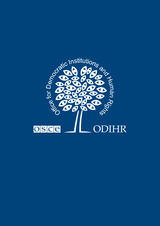- Home
- About us
-
Our work
- Elections
- Civil society
- Rule of law
- Democratic governance
- Legislative support
- Freedom of religion or belief
- Freedom of peaceful assembly
- Gender-based violence
- Human rights defenders
- Human rights and new technologies
- Human rights and gender-responsive security sector
- Human rights and anti-terrorism
- Migration and freedom of movement
- National human rights institutions
- Torture
- Trafficking in human beings
- Hate crime
- People with disabilities
- Racism, xenophobia and discrimination
- Roma and Sinti
- Gender equality
- Special meetings
- News
- Events
- Resources
Study / report

Alternative voting methods and arrangements
This paper considers possible benefits and risk factors of conducting elections using methods and arrangements alternative to the predominant practice of voting in polling stations over the course of a single election day. Different voting methods and arrangements are analysed in light of the existing OSCE commitments, other international obligations, standards and good practice in the field of democratic elections. While the choice of voting methods rests with the OSCE participating States, this paper intends to provide information to benefit public discussion about alternative voting methods and arrangements, including in the context of the COVID-19 pandemic.
- Date:
- Source:
- OSCE Office for Democratic Institutions and Human Rights
- Publisher:
- Organization for Security and Co-operation in Europe
- Our work:
- Elections